This summer Planet Drum hosted the fourth study abroad program with the University of Oregon. The course is called Sustainable Development in Latin America and covers the tensions, challenges, and possibilities for reconciling development and conservation in the dry tropical forest zone, a critically important and globally imperiled ecosystem.
Twelve students were accompanied by professor Moriah McGrath on the program. After spending a week taking language classes at the Simon Bolivar Language School and some cultural sight-seeing, the group traveled to Bahía to participate directly in Planet Drum’s ecological projects and visit coastal points of bioregional interest for 3 additional weeks. In addition to field activities and educational tours, the group participated in daily classes with professor McGrath.
During the first week, the group received an introduction to Bahía, Planet Drum’s projects, and the Dry Tropical Forest. Activities included a walking tour of Bahía and the food market, a workshop at the Planet Drum greenhouse behind the Catholic University, a tour at the Cerro Seco Biological Reserve, a community greenhouse workshop in the Los Arguellos neighborhood, and an overnight visit to the Rio Muchacho Organic Farm.
At the greenhouse, the group learned about revegetation methods specific to the Dry Tropical Forest ecosystem, toured the greenhouse facility, and then participated in greenhouse work such as: cutting plastic bottles, sifting compost, mixing soil, filling the bottles with soil, and transplanting seedlings from elevated seedbeds into the bottles.
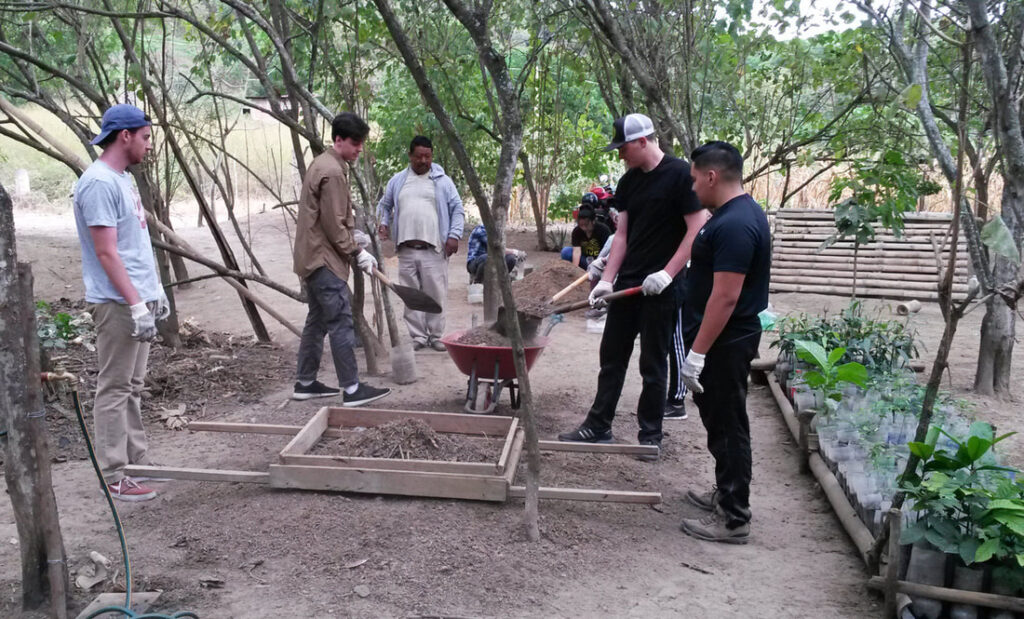
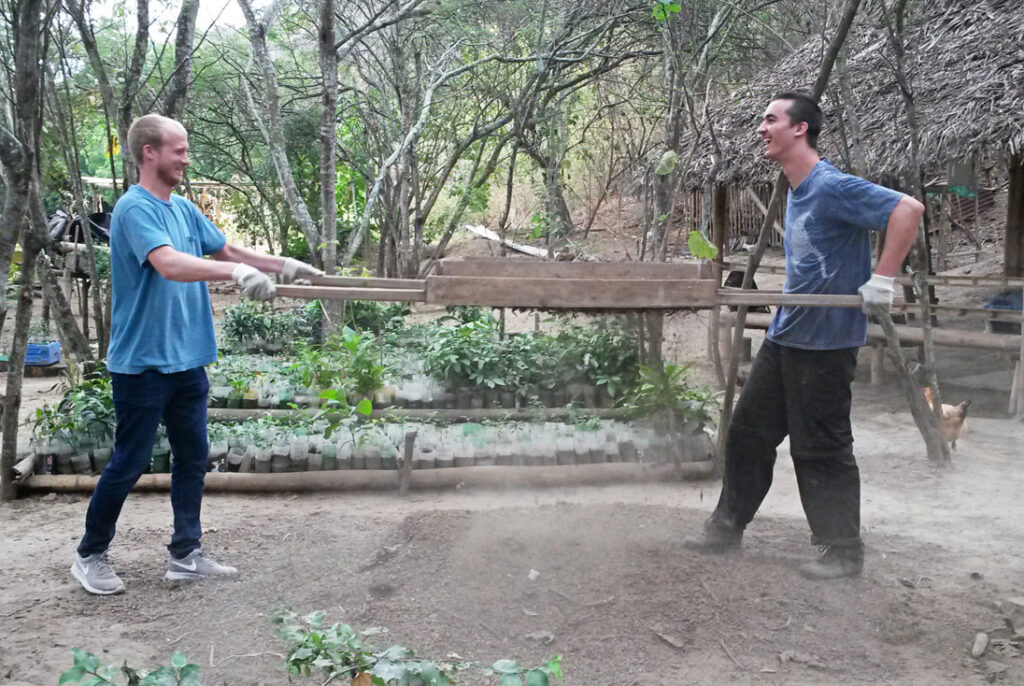

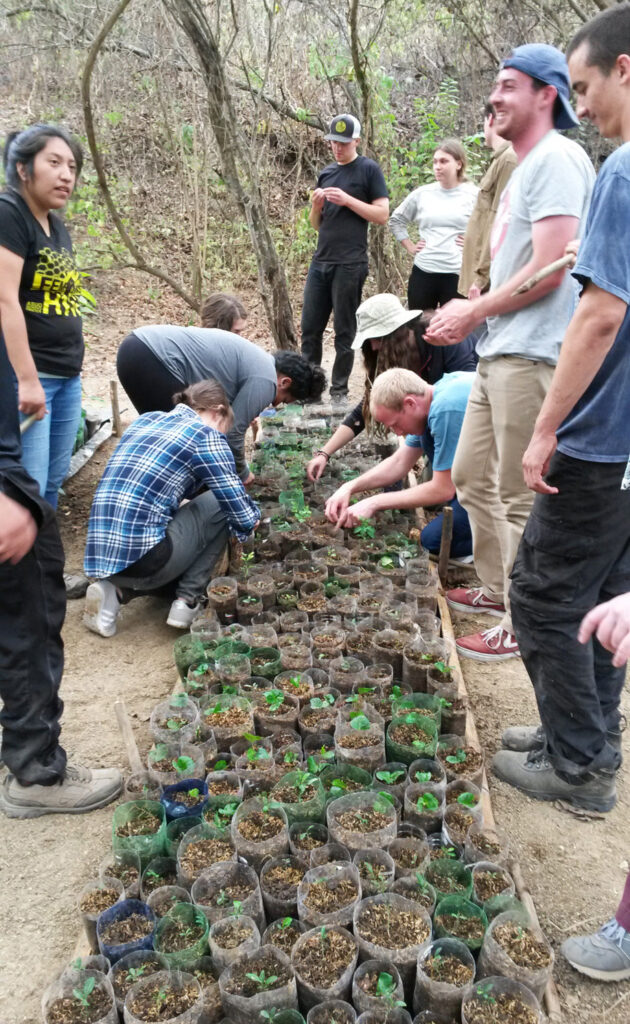
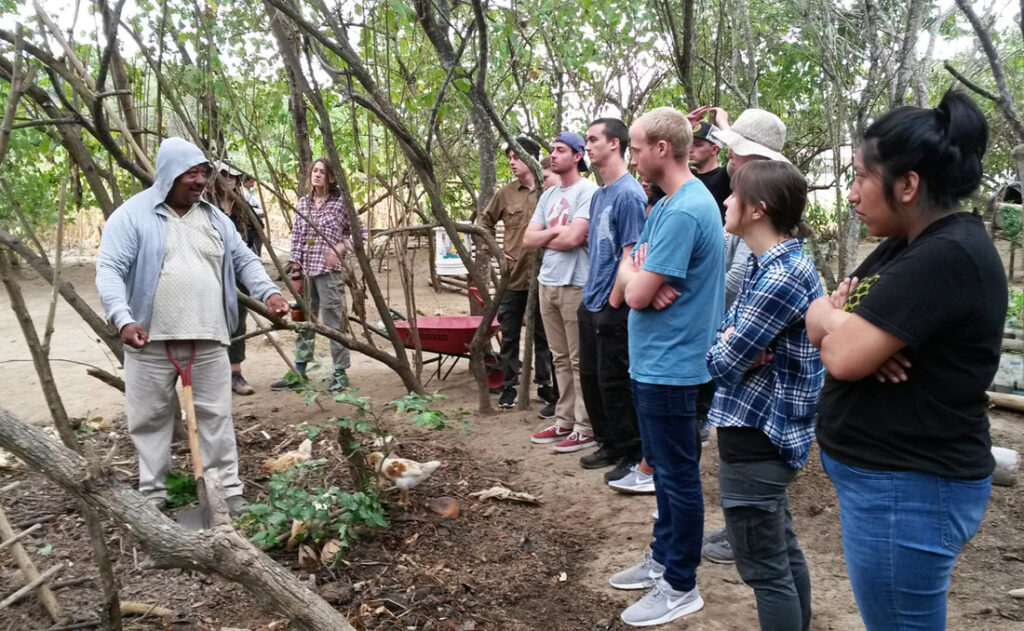
The next day everyone had a delicious breakfast at Cerro Seco, and the group took a walking tour through the trails at the reserve where they learned about native flora and fauna.
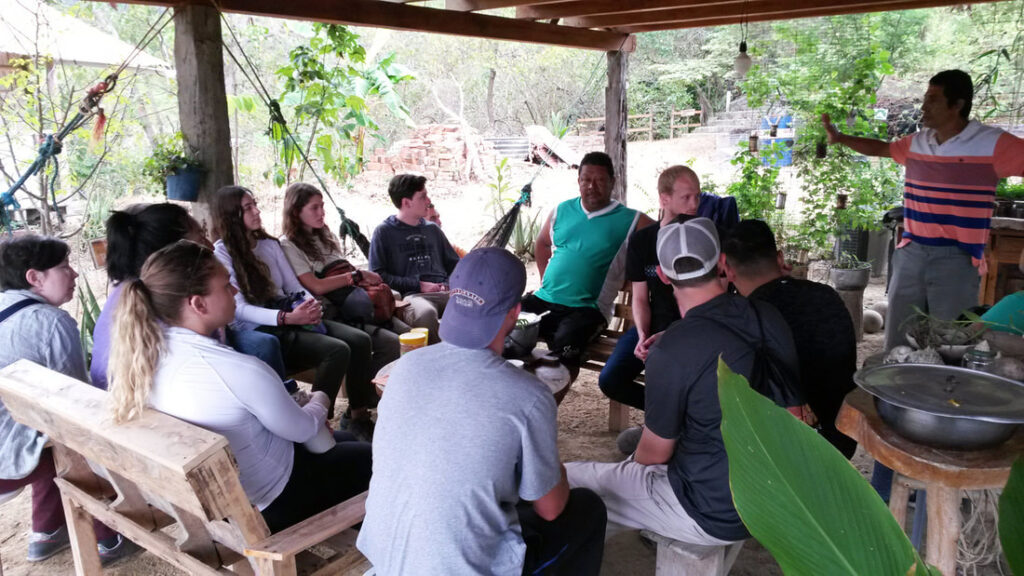

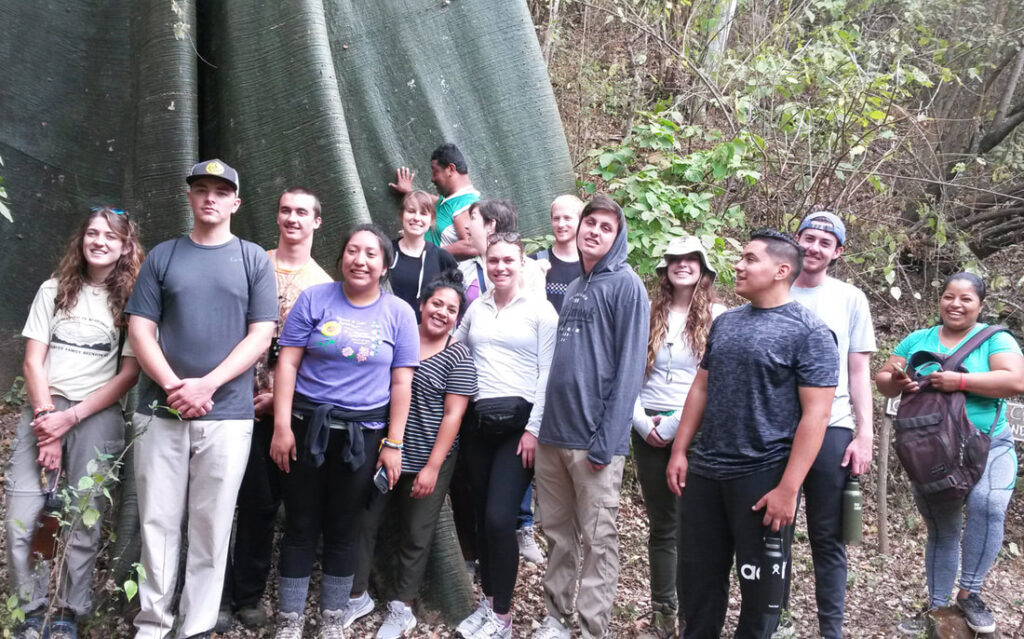

The community workshop was held in the Los Arguellos community, just outside of Bahía, which was created after the April, 2016 earthquake for refugees who had lost their homes. Many of the residents are from neighborhoods where Planet Drum had participated in community tree planting workshops in the past. Their new community is almost devoid of vegetation and the residents are eager to green up Los Arguellos. Last year Planet Drum led a community workshop to build an elevated seed bed for plants and planted trees. Most of the trees survived (80+%) and are growing well. The study abroad group continued working with the community and in one afternoon, the University of Oregon group installed two new elevated seedbeds, learned about composting practices, and planted over one dozen trees!
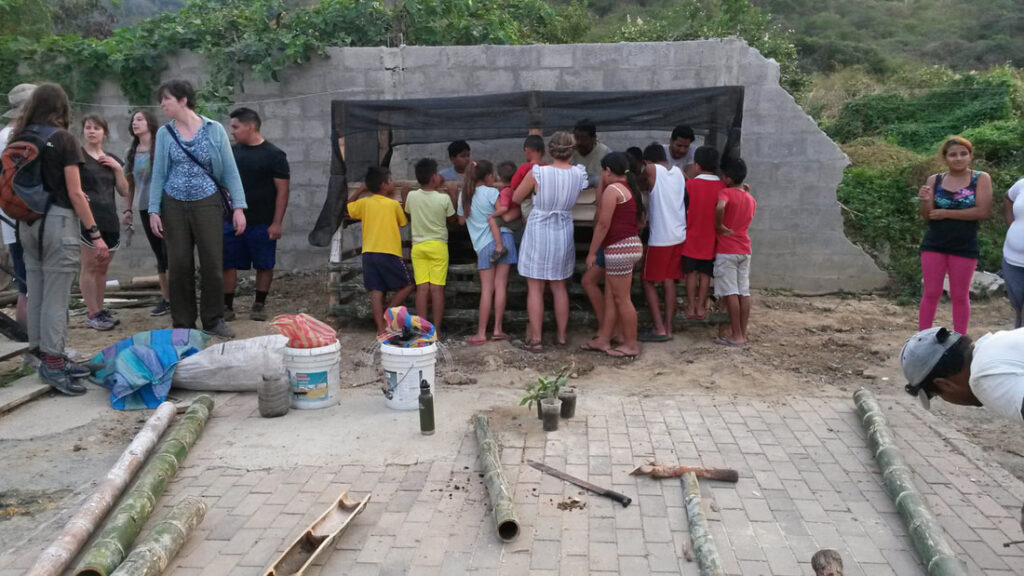

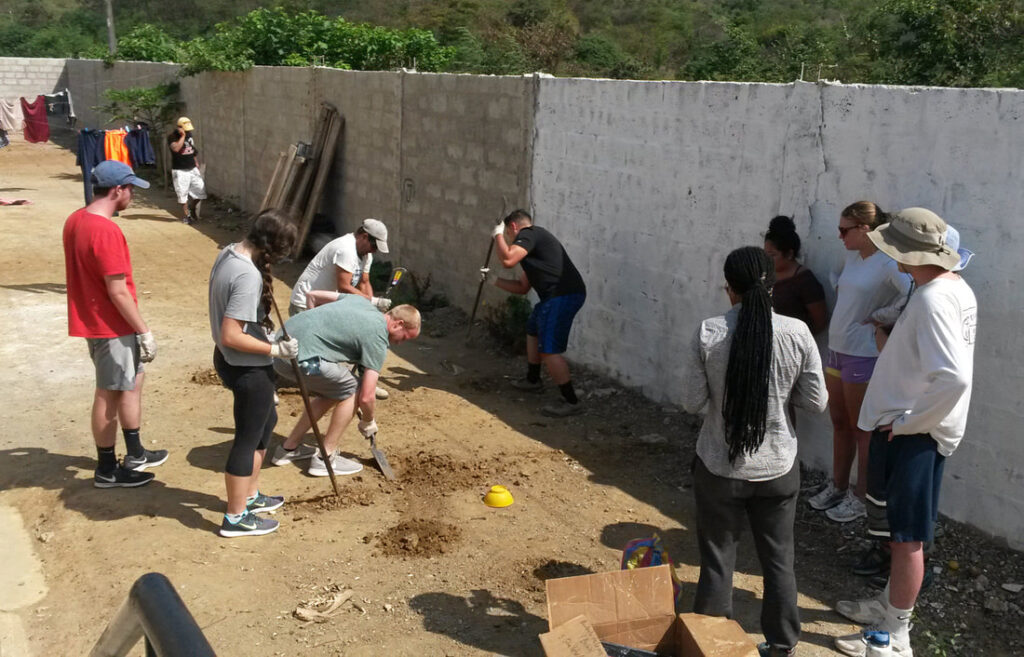
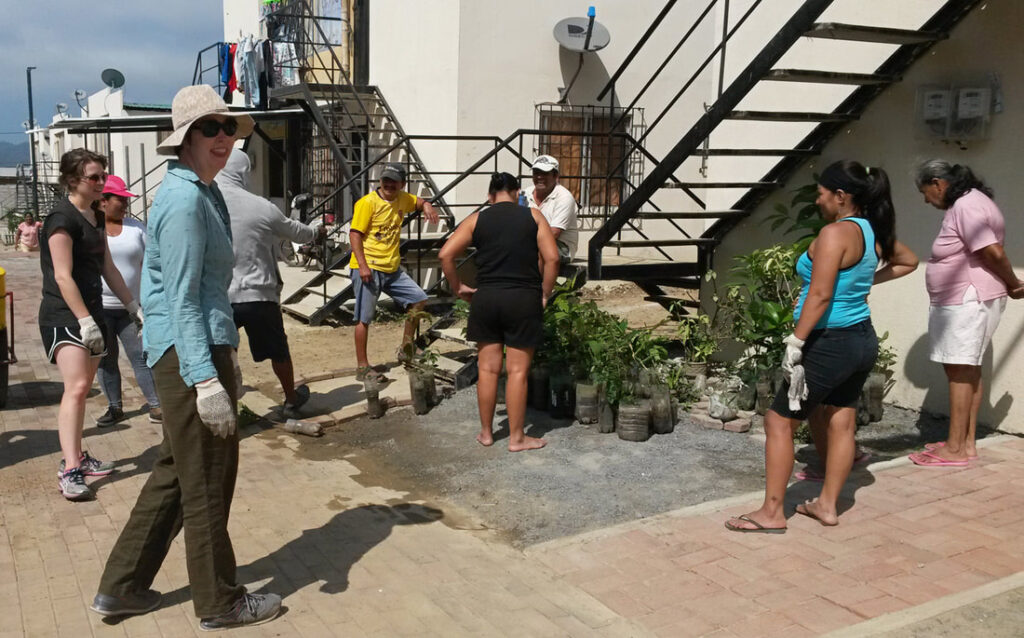

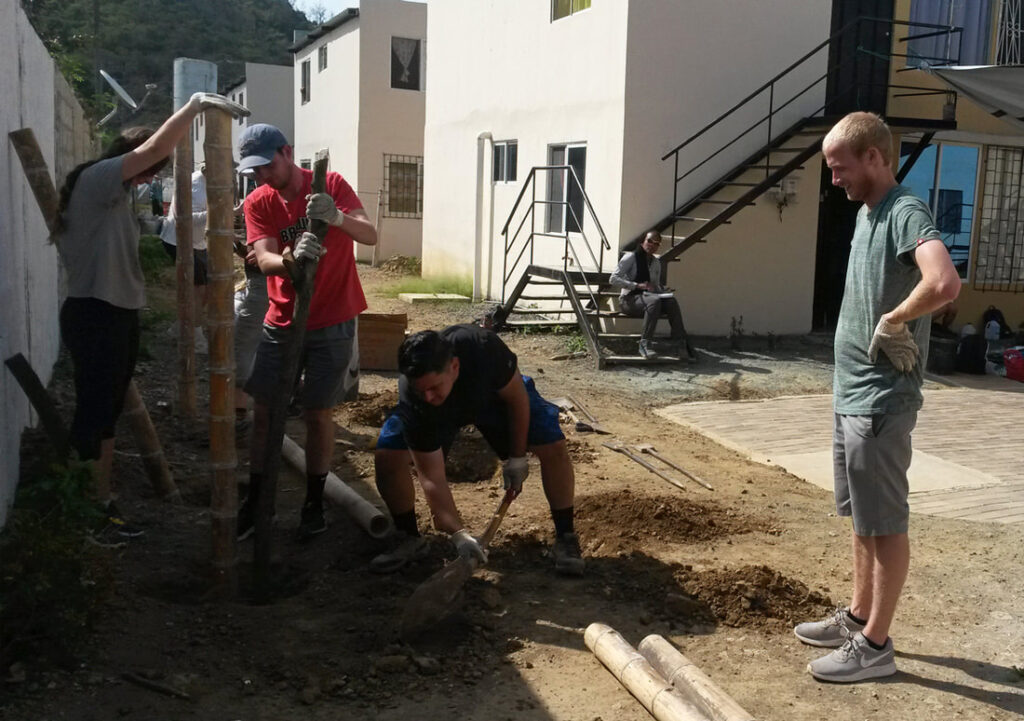
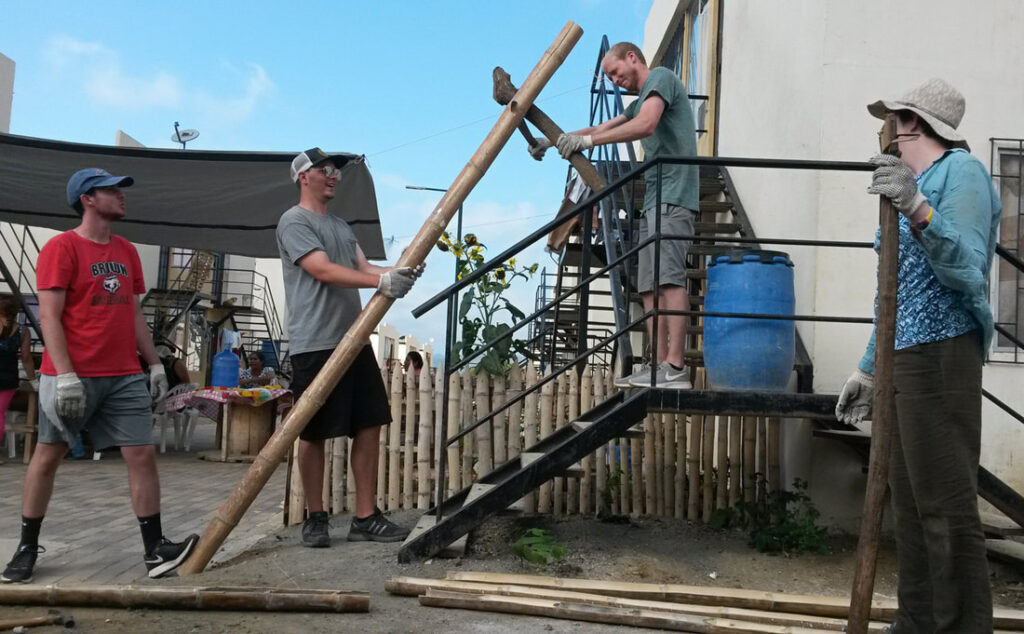
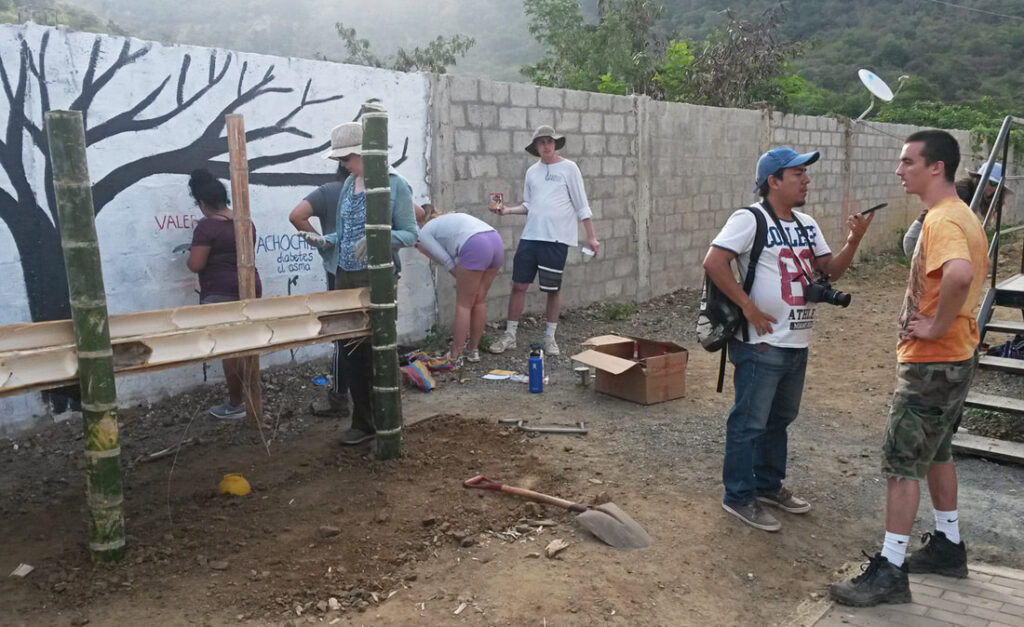
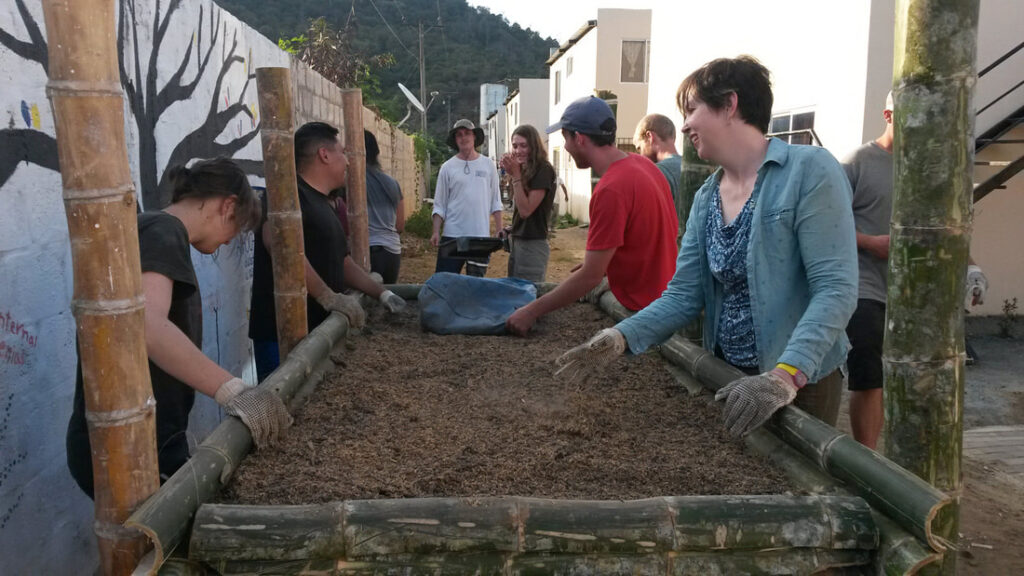
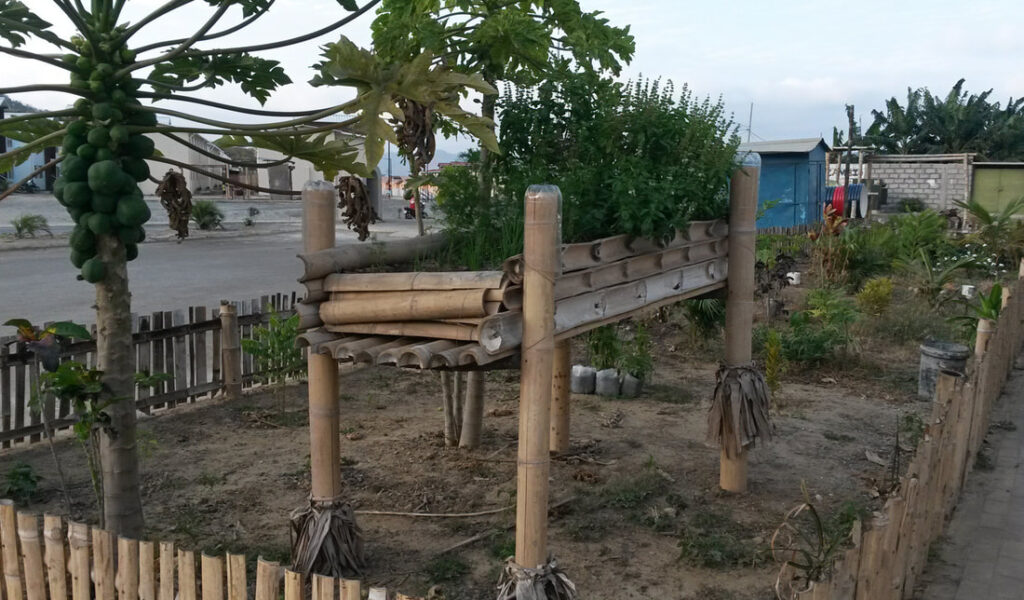
The following day the group traveled to the Rio Muchacho Farm where they learned about permaculture practices such as composting toilets, various methods of composting and recycling animal waste, and reforestation. Nicola Mears (co-director) gave a presentation on the history of permaculture and Dario Proaño (co-director) gave a talk on natural efficiencies and conventional versus permaculture agricultural practices. The group also participated in work activities such as emptying a composting toilet and fertilizing the productive forest area, making Bokashi compost, and building a special planting bed in the organic garden.
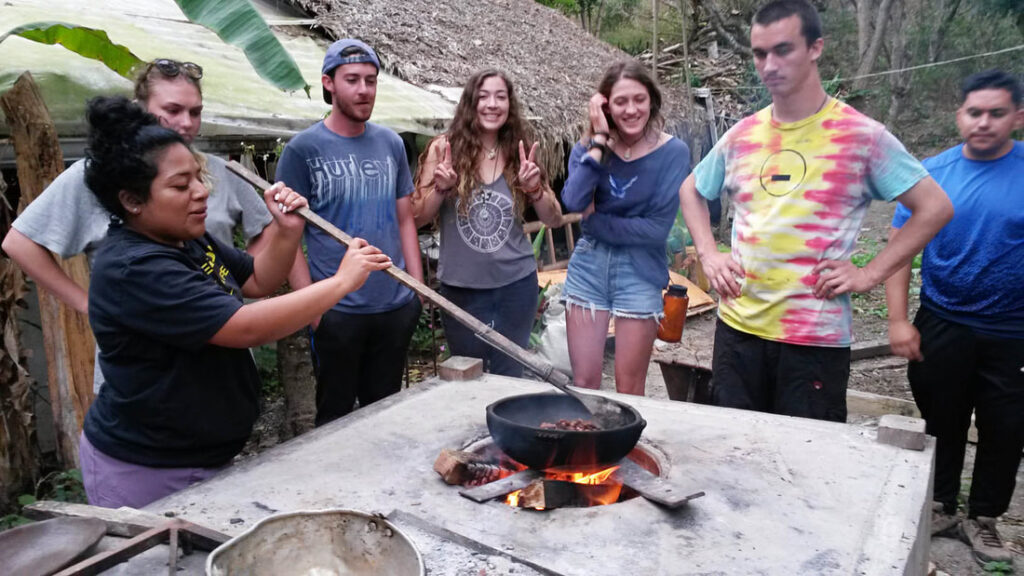
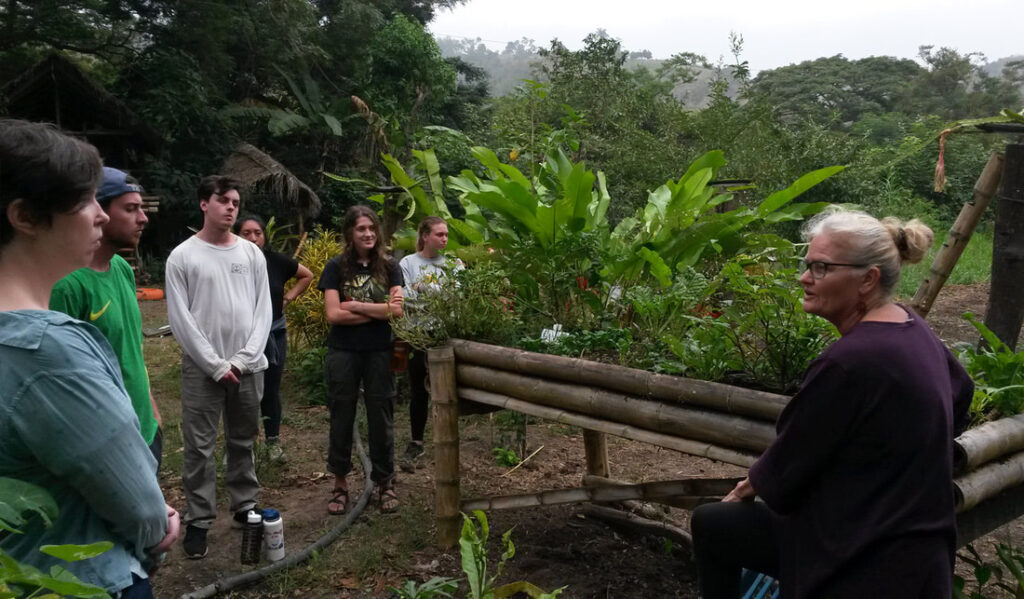
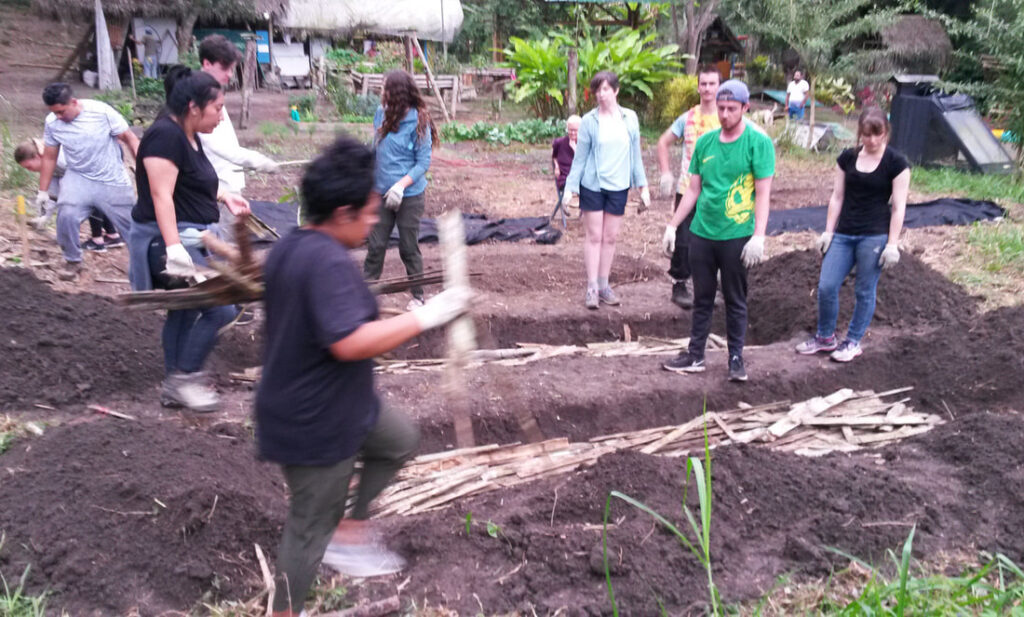
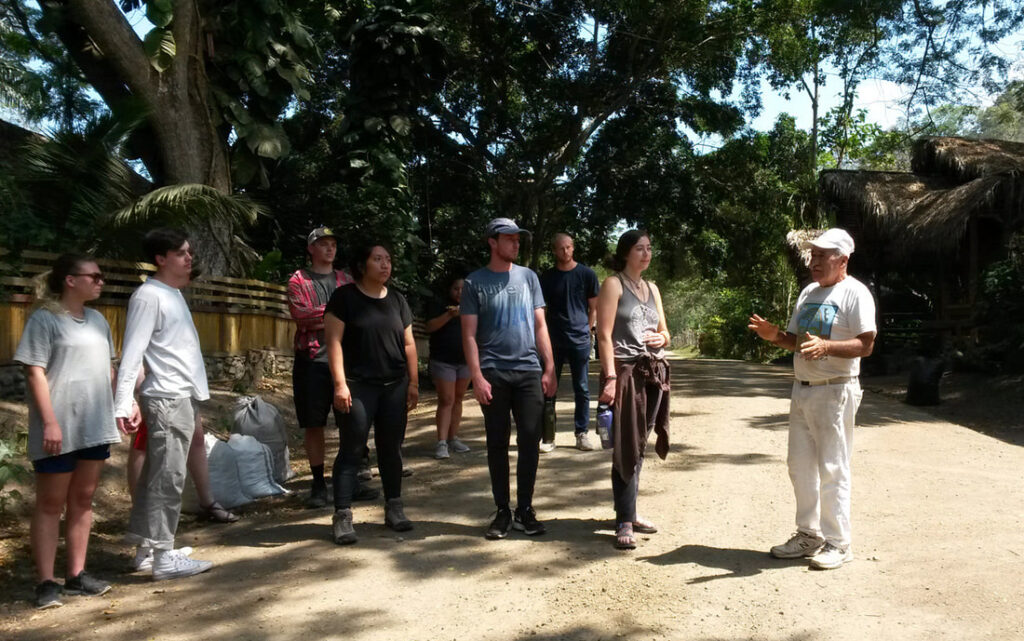




Your point of view caught my eye and was very interesting. Thanks. I have a question for you.
Thank you for your sharing. I am worried that I lack creative ideas. It is your article that makes me full of hope. Thank you. But, I have a question, can you help me?